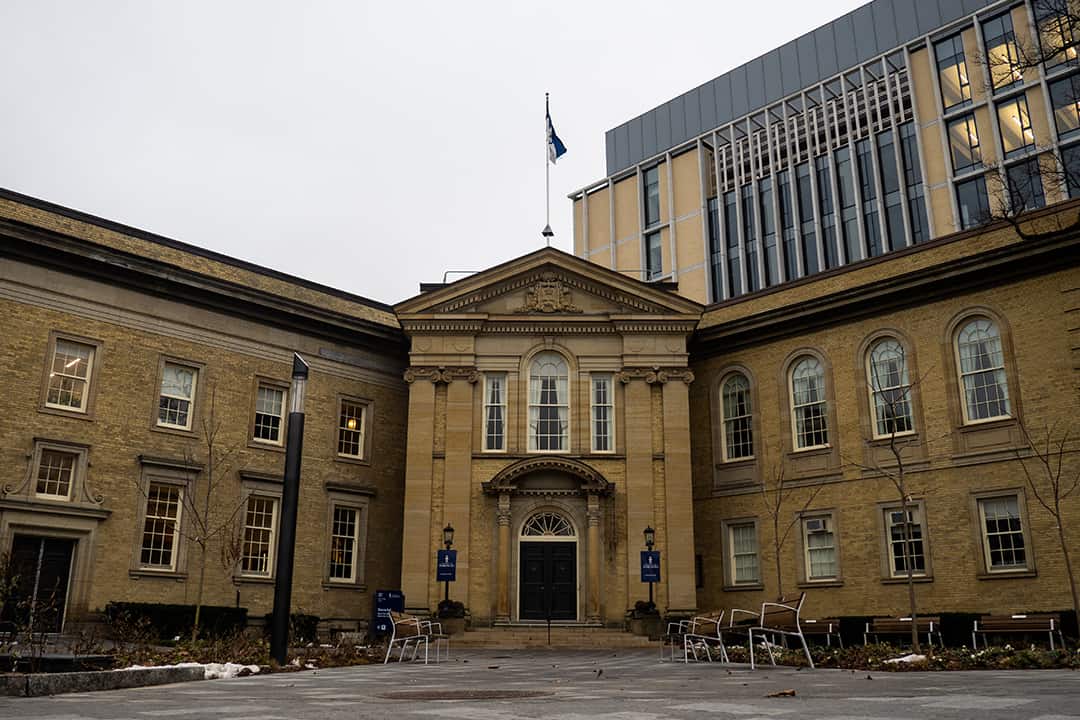Content warning: This article mentions genocide and faith-based racism.
At the December 18 meeting of the University of Toronto Governing Council — which oversees the university’s academic, business, and student affairs — U of T President Meric Gertler spoke about the rising tensions and hostility felt by Jewish and Palestinian community members. He further discussed the provincial Blue-Ribbon panel’s recommendations for changes in Ontario postsecondary fiscal policy.
The Presidential Committee on the Environment, Climate Change and Sustainability also presented its plans for implementing more sustainable practices at U of T and discussed its triumphs from 2023.
U of T has recently opened nominations for student seats on multiple governing bodies for the 2024–2025 year, including eight student seats on the Governing Council: four for full-time undergraduate students, two for part-time undergraduate students, and two for graduate students. Interested students must submit a candidacy form online by January 18 at 5:00 pm. Voting will take place online from February 6–16.
Reducing faith-based racism on campus
Gertler began his report by discussing the measures U of T has taken to create a safer campus environment since the beginning of recent and ongoing violence in Gaza and Israel. He recognized the losses felt by people with loved ones in the region.
At a congressional hearing in December 2023 about antisemitism and limitations on hate speech at university campuses, congress members asked presidents of Harvard University, Massachusetts Institute of Technology, and University of Pennsylvania whether calling for genocide against Jewish people would violate their universities’ codes of conduct.
When asked about this by the Federal Liberal Caucus and the Toronto Star, Gertler said, and reiterated at the meeting, that “threats of harm to others and inciting violence and genocide are clear violations of university policy.”
In response to letters he received expressing concerns from Jewish, Muslim, and Palestinian students and faculty members, Gertler reported that he’d outlined a new approach to addressing complaints of faith-based racism by creating a new position of assistant director of faith and anti-racism. Starting in winter 2024, Shari Goldberg — who previously worked in the Ministry of Labour, Training and Skills Development and holds a PhD from U of T — will work to enhance the process for responding to faith-based racism incidents and promote dialogue within the university community in her new position.
The Blue-Ribbon Panel report and Fall Economic Statement
In his speech, Gertler also discussed expected changes in fiscal policy at U of T and across universities in Ontario in accordance with the report of the Blue-Ribbon Panel. The Council of Ontario Universities convened the panel to make recommendations that would help ensure financial stability among colleges and universities. Gertler highlighted that one-third of colleges in Ontario ran deficits in 2023.
The panel recommended increasing tuition for professional programs and, to ensure middle and low-income students can continue to access education, grants for domestic students and funding for the Ontario Student Assistance Program.
While Gertler appreciated the panel for their work, he pointed out how much support from the province as a whole has decreased over the past decade, when accounting for inflation: “Let me remind governors that the provincial grant per student that we receive has not increased since 2008.” He advocated for the province to increase funding for universities across Ontario and lift the provincial tuition freeze that has been in place since 2019.
Gertler also discussed the Fall Economic Statement released by the Trudeau government on November 21, 2023, which describes the government’s current budgetary situation and plans for spending. He expressed his disappointment that the federal government did not mention allocating additional money for research and graduate student support in the statement, particularly given a recent federal government report calling for more support.
He also mentioned that the Liberals’ statement focused on helping solve the housing affordability crisis. He called on local governments to accelerate the approval process of new residence projects and on the federal and provincial governments to subsidize the process of setting up new residences through capital grants.
Advisory committee reports on sustainability
President Gertler concluded his report by announcing that U of T ranked first in the QS World University Rankings: Sustainability 2024. Following his address, the co-chairs of the Presidential Committee on the Environment, Climate Change and Sustainability presented their report, which broke down U of T’s progress toward sustainability in the last year and the university’s goals for 2024.
The committee’s sustainable development goals focus on four areas with associated subcommittees: teaching and learning; research; operations; and engagement and partnership. The committee is undertaking projects, such as workshops and internships, in these subcommittees to work toward achieving the United Nations’ Sustainable Development Goals.
Advocating for higher masters research assistant wages
Members of the Graduate Architecture, Landscape & Design Student Union including Health and Sustainability Officer Izzy Mink, Equity and Diversity Officer Bhavika Sharma, and Masters of Landscape Architecture student Jessica Palmer addressed the council on behalf of 270 graduate students at the John H. Daniels faculty who have signed a petition calling for all masters student research assistants to receive a living wage of $25 per hour.
The speakers noted that, despite the rising cost of living in Toronto, many students still only earn minimum wage. “What should currently be a priority for the university is a commitment to ensuring that the people that make this university great can afford to continue to do so,” Mink told the council.



No comments to display.